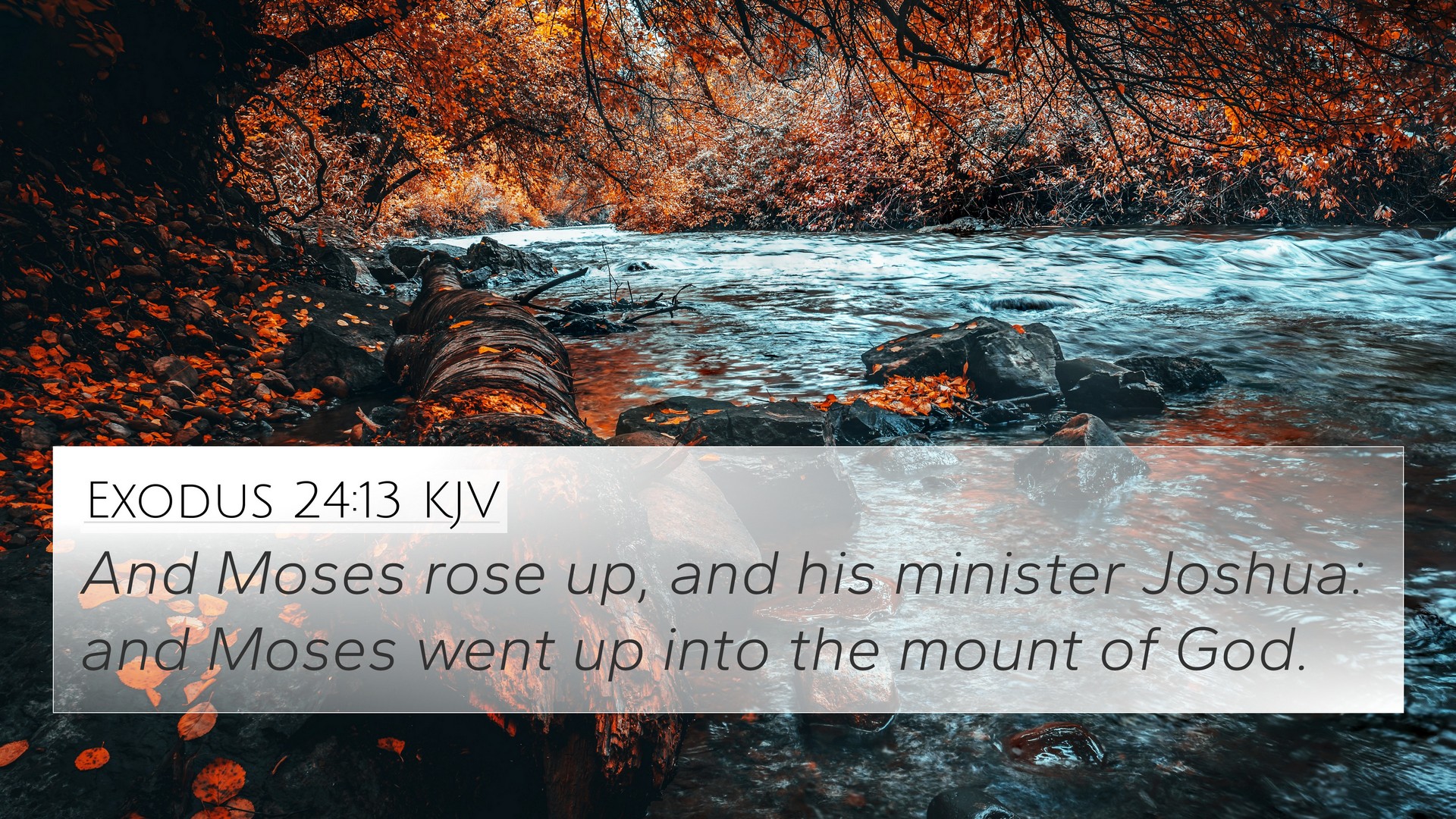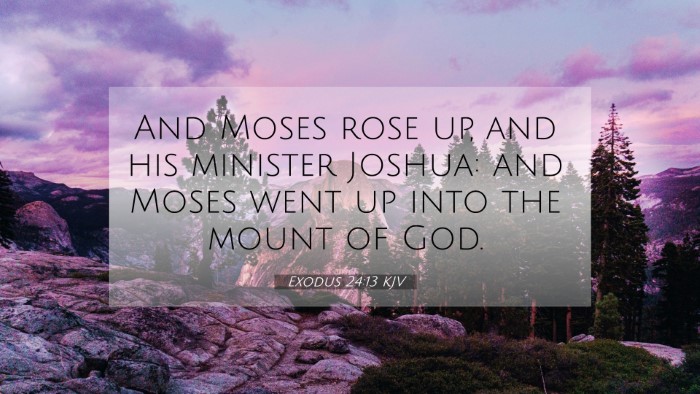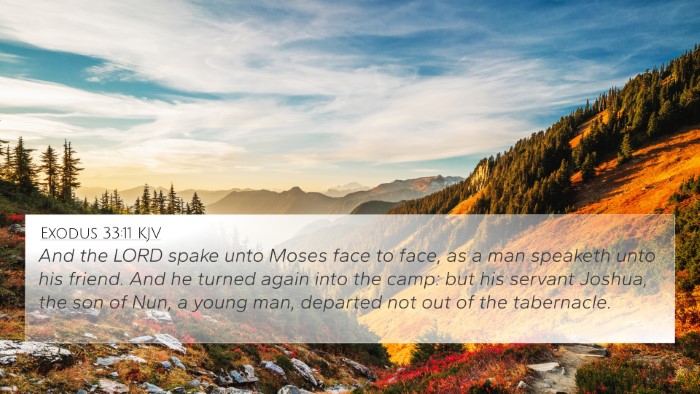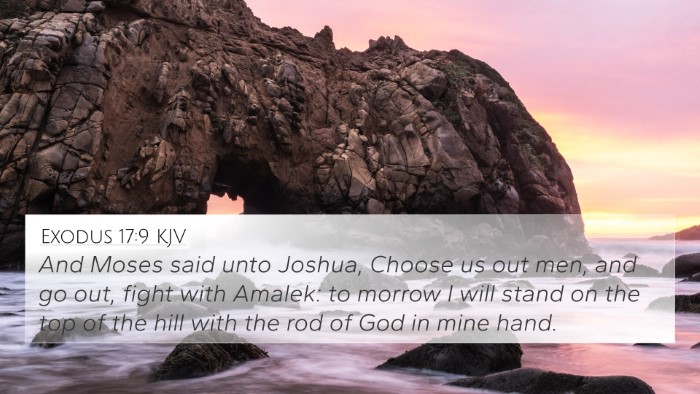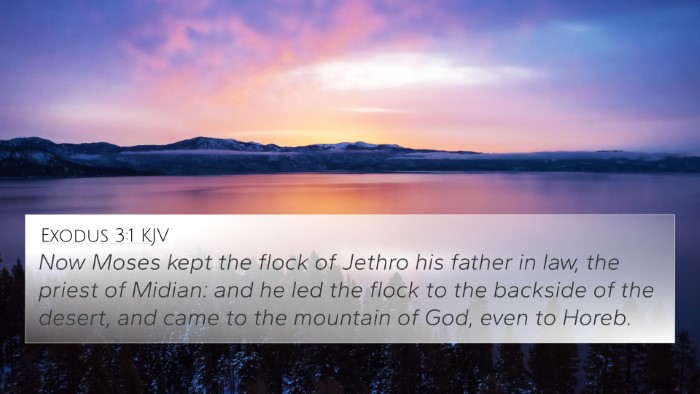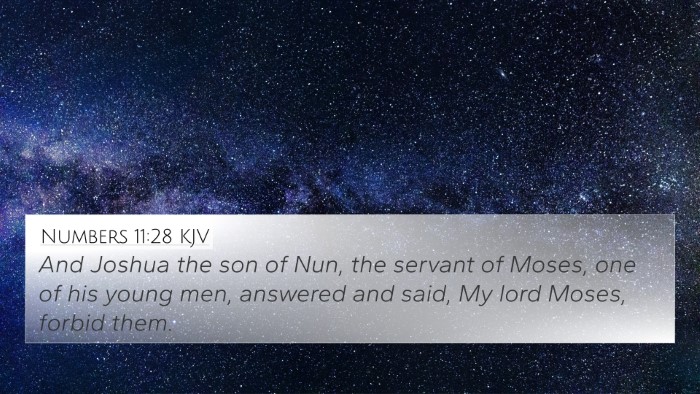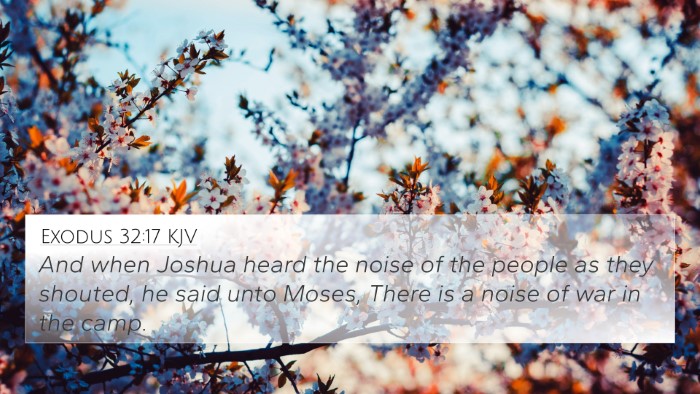Understanding Exodus 24:13
Exodus 24:13 reads: "And Moses rose up, and his minister Joshua: and Moses went up into the mount of God." This verse marks a pivotal moment in the Israelites' journey, highlighting the divine encounter and leadership role of Moses and Joshua.
Contextual Overview
The context of Exodus 24 reveals the approach of the Israelites toward a profound relationship with God, characterized by covenant and divine lawgiving. It is essential to consider the significance of Moses ascending the mountain alongside Joshua, his faithful aide, as it symbolizes both the leadership and the preparation for future guidance of Israel.
Commentary Insights
- Matthew Henry: Henry emphasizes the importance of Joshua's presence, indicating that he was being prepared for future leadership. His ascent with Moses signifies the transmission of wisdom and authority.
- Albert Barnes: Barnes provides insight into the setting, explaining that Moses' elevation to the mountain represents a vital step in receiving the covenant from God, which would bind the Israelites to divine commandments.
- Adam Clarke: Clarke discusses the implications of this event for the role of mediators and leaders in spiritual contexts, arguing that Moses sets an example of faithfulness in seeking God, while Joshua signifies emerging leadership.
Cross-References Associated with Exodus 24:13
This verse connects with several other biblical passages, illustrating the interconnectedness of scripture:
- Exodus 3:10: God's command to Moses to be a leader emphasizes the foundational role Moses plays as a mediator.
- Numbers 27:18: This verse shows God’s selection of Joshua as Moses’ successor, reinforcing the transition of leadership.
- Deuteronomy 31:7: Highlights Moses commissioning Joshua, linking to leadership and covenant themes.
- Joshua 1:1-2: Documents the transition of command from Moses to Joshua, establishing continuity in God’s plan for Israel.
- 1 Chronicles 7:27: Provides a genealogical context for Joshua, linking his heritage to his leadership role.
- Hebrews 3:2: Mentions Moses as a faithful servant in God’s house, drawing contemporary parallels with Joshua’s leadership.
- Exodus 19:20: Speaks of God descending upon the mountain, parallel to the divine encounter expected in Exodus 24:13.
Thematic Bible Verse Connections
This verse reflects themes of leadership, covenant, and divine encounters. The relationship between Moses and Joshua can be seen as a foreshadowing of future mentorship roles found throughout scripture.
Leadership Transition
Just as Moses led the Israelites out of Egypt, the selection of Joshua signifies an important transition in leadership that is echoed in:
- 1 Samuel 16:12-13: God's choice of David, another shepherd, signifies a continuity of leadership in divine guidance.
- Titus 1:5: Paul's instructions on appointing leaders indicate the ongoing need for faithful discipleship.
God's Covenant
The ascent of Moses to receive God’s laws signifies the themes of covenant that run through:
- Romans 9:4: Discusses the covenants given to Israel, emphasizing their significance.
- Hebrews 9:15: Reminds readers of the purpose of a new covenant in Christ, linking both Old and New Testament themes.
Inter-Biblical Dialogue
This verse initiates dialogue between the Old and New Testaments, showcasing how themes of leadership and covenant evolve. The ideas presented in Exodus continue to resound in the teachings of Christ and the epistles.
Conclusion
Exodus 24:13 invites us to explore profound themes of leadership and divine communication. As Moses and Joshua ascend the mountain, they symbolize the continuity of God's plan and the importance of faithful leadership. By cross-referencing this verse with others, we discern a rich tapestry of biblical connections, illustrating the nuanced relationships within the Scriptures.
